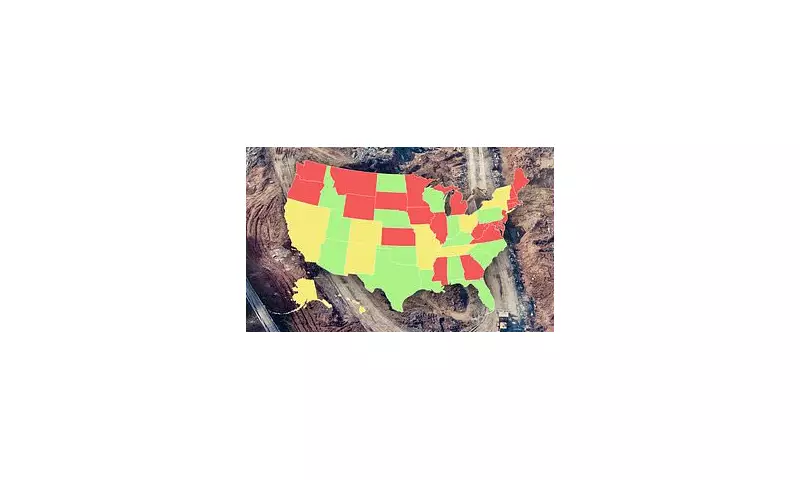
America's economic landscape is showing alarming cracks as nearly half of all US states slide toward recession, according to a stark warning from one of the world's most respected economists.
The Bleak State-by-State Picture
Mark Zandi, chief economist at Moody's Analytics, has delivered a grim assessment revealing that 23 states are now in recession or at high risk of falling into one. This represents a significant deterioration from September, when his analysis flagged 22 regions as endangered.
The troubling findings come after major corporations slashed more than 150,000 jobs last month - representing the highest October total in over two decades. Zandi's team analysed comprehensive data including household employment, industrial production, retail sales and building permits to categorise all 50 states into three groups: recession or at risk, treading water, and expanding.
The results paint a concerning picture: only 16 states are firmly growing, while the remaining 12 - including economic powerhouses California and New York - have plateaued.
Economic Powerhouses Under Pressure
The fate of America's national economy increasingly rests in the hands of its two largest state economies, according to Zandi's analysis. California and New York collectively represent crucial pillars that could determine whether the nation avoids a full-blown recession.
"Whether the national economy suffers a downturn appears to rest on the big California and New York economies," Zandi emphasised. "Neither economy is in recession, but both are struggling to gain traction."
Both states face mounting pressures from tariffs and downturns in immigration, compounding existing challenges from sticky inflation, dwindling home construction, factory layoffs and stagnant wages.
Michigan, accounting for 2.4% of America's economic growth, has become the latest addition to the recession-risk category. The 23 struggling states now account for 31.8% of the US's overall GDP, with this concerning trend continuing to expand.
AI Optimism Meets Investor Skepticism
Amid the gloomy outlook, artificial intelligence has emerged as a rare bright spot, providing a boost to economic growth that has kept Wall Street trading near record highs. Major data centre construction and spending projects inspired by AI advancements have offered some counterbalance to broader economic headwinds.
However, the mood around AI-fuelled optimism has recently wobbled. All three major indexes have taken steep losses this week as prominent investors sour on the technology's risky bets.
Among the sceptics is Michael Burry, the Big Short investor who predicted the 2008 financial crash, who has now placed a substantial bet that Nvidia's share price will fall. Similarly, Masayoshi Son, one of tech's most-watched investors, revealed he quietly sold all his Nvidia shares last month.
The fear index spiked yesterday amid a major sell-off, raising questions about whether AI can sustain its role as a reliable economic engine. Zandi warned that if AI falters and California and New York cannot find their footing, the domino effect could tip the national economy into the recession it has been teetering toward.
For now, Wall Street appears to be shrugging off the recent wave of pessimism, with the Nasdaq gaining 0.6 percent by midday trading today and Nvidia, the AI lynchpin, up 1.6 percent. Yet economists remain deeply concerned about whether this bounce represents genuine momentum or merely another temporary wobble in America's uncertain economic path.





